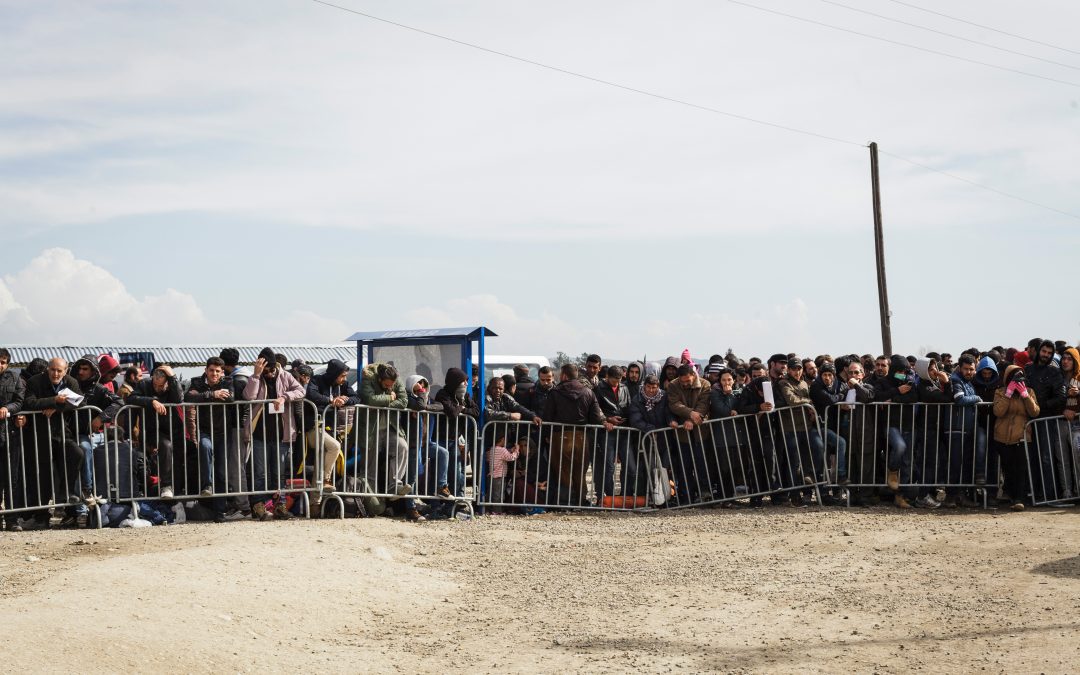UN Global Pulse and UNHCR published today a white paper entitled “Social Media and Forced Displacement: Big Data Analytics & Machine-Learning.” The paper is the result of an experimental project conducted by the two agencies to inform the viability of using Twitter data for understanding trends in the Europe Refugee Emergency.
Ongoing conflicts and violence around the world have led over 1.4 million people to seek refuge in Europe between 2015 and the first part of 2017. As people travel, sometimes across multiple borders, they encounter increasing protection risks, particularly when routes change, legal practices evolve and borders close. This forced displacement represents a challenge for humanitarian organizations working to provide assistance to people fleeing dangerous situations.
UN Global Pulse and UNHCR Innovation Service, an interdepartmental initiative of the Office of the United Nations High Commissioner for Refugees (UNHCR) used data from Twitter to monitor protection issues and the safe access to asylum for migrants and refugees in Europe. The experimental project investigated interactions among refugees, between refugees and host communities, and between refugees and service providers along the way into Europe.
“Before testing a big data innovation project in an ongoing emergency, one needs to select a retrospective realistic scenario or a simulation to understand the value of that data. This is exactly what we tried to do with UNHCR—validate the viability and value of Twitter data to see what insights we can derive from it,” said Miguel Luengo-Oroz, Chief Data Scientist at UN Global Pulse.
The project created taxonomies for monitoring both interactions between refugees, communities and service providers, and sentiment of communities towards refugees following the terrorist attacks in Europe in six languages: English, Greek, German, French, Arabic, and Farsi.
The paper summarises the initial findings and lessons learned and describes the results of ten mini-studies that were developed as part of the project. It outlines the process, questions, and methodology used to develop the studies, and presents preliminary observations on how aspects of the Europe Refugee Emergency are related on social media.
“UNHCR has been exploring the use of new data sources into our operations globally, including inter alia meteorological data, climate data, and in this instance, social media data. We want to bring more data-driven evidence into decision-making processes on a number of different levels, connecting sometimes unusual data sources with some of our most critical data sources, in order to better understand our constituents, and to improve protection outcomes,” said Christopher Earney, Head a.i., UNHCR Innovation Service. “What’s exciting about our ongoing, global collaboration with UN Global Pulse is that we can gain access to real-time information around issues that affect our constituents, whether these are prosaic sentiments, or perhaps xenophobic sentiments. In all instances, our aim is to better understand, to adapt, and in some cases mitigate. UN Global Pulse are a key partner, and key to much of what we do in the Innovation Service at UNHCR,” he added.
Ultimately, the project seeks to build a near real-time social media monitoring system that can inform operational responses for humanitarian actors.
“Global Pulse has served as a data innovation hub within the UN for over seven years, testing new approaches and designing big data pilot projects together with many partners and agencies. Our hope is that the processes detailed in this paper—what worked, what didn’t, and what we learned along the way—will serve as an example and inspire the data innovation work of other UN and humanitarian actors,” added Miguel Luengo-Oroz.
You can download the new publication “Social Media and Forced Displacement: Big Data Analytics & Machine-Learning” here.
Photo Credit: UNHCR/Achilleas Zavallis
We’re always looking for great stories, ideas, and opinions on innovations that are led by or create impact for refugees. If you have one to share with us send us an email at [email protected]
If you’d like to repost this article on your website, please see our reposting policy.

